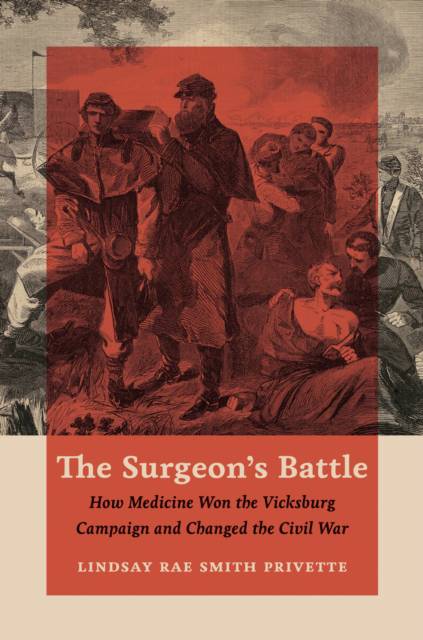
- Afhalen na 1 uur in een winkel met voorraad
- In januari gratis thuislevering in België
- Ruim aanbod met 7 miljoen producten
- Afhalen na 1 uur in een winkel met voorraad
- In januari gratis thuislevering in België
- Ruim aanbod met 7 miljoen producten
The Surgeon's Battle
How Medicine Won the Vicksburg Campaign and Changed the Civil War
Lindsay Rae Smith PrivetteOmschrijving
Between May 1 and May 22, 1863, Union soldiers marched nearly 200 miles through the hot, humid countryside to assault and capture the fortified city of Vicksburg, Mississippi. Upon its arrival, the army laid siege to the city for a grueling forty-seven days. Disease and combat casualties threatened to undermine the army's fighting strength, leaving medical officers to grapple with the battlefield conditions necessary to sustain soldiers' bodies. Medical innovations were vital to the Union victory. When Vicksburg fell on July 4, triumph would have been fleeting if not for the US Army Medical Department and its personnel.
By centering soldiers' health and medical care in the Union army's fight to take Vicksburg, Lindsay Rae Smith Privette offers a fresh perspective on the environmental threats, logistical challenges, and interpersonal conflicts that shaped the campaign and siege. In doing so, Privette shines new light on the development of the army's medical systems as officers learned to adapt to their circumstances and prove themselves responsible stewards of soldiers' bodies.
Specificaties
Betrokkenen
- Auteur(s):
- Uitgeverij:
Inhoud
- Aantal bladzijden:
- 224
- Taal:
- Engels
- Reeks:
Eigenschappen
- Productcode (EAN):
- 9781469690278
- Verschijningsdatum:
- 2/09/2025
- Uitvoering:
- Paperback
- Formaat:
- Trade paperback (VS)
- Afmetingen:
- 156 mm x 234 mm
- Gewicht:
- 317 g

Alleen bij Standaard Boekhandel
Beoordelingen
We publiceren alleen reviews die voldoen aan de voorwaarden voor reviews. Bekijk onze voorwaarden voor reviews.









